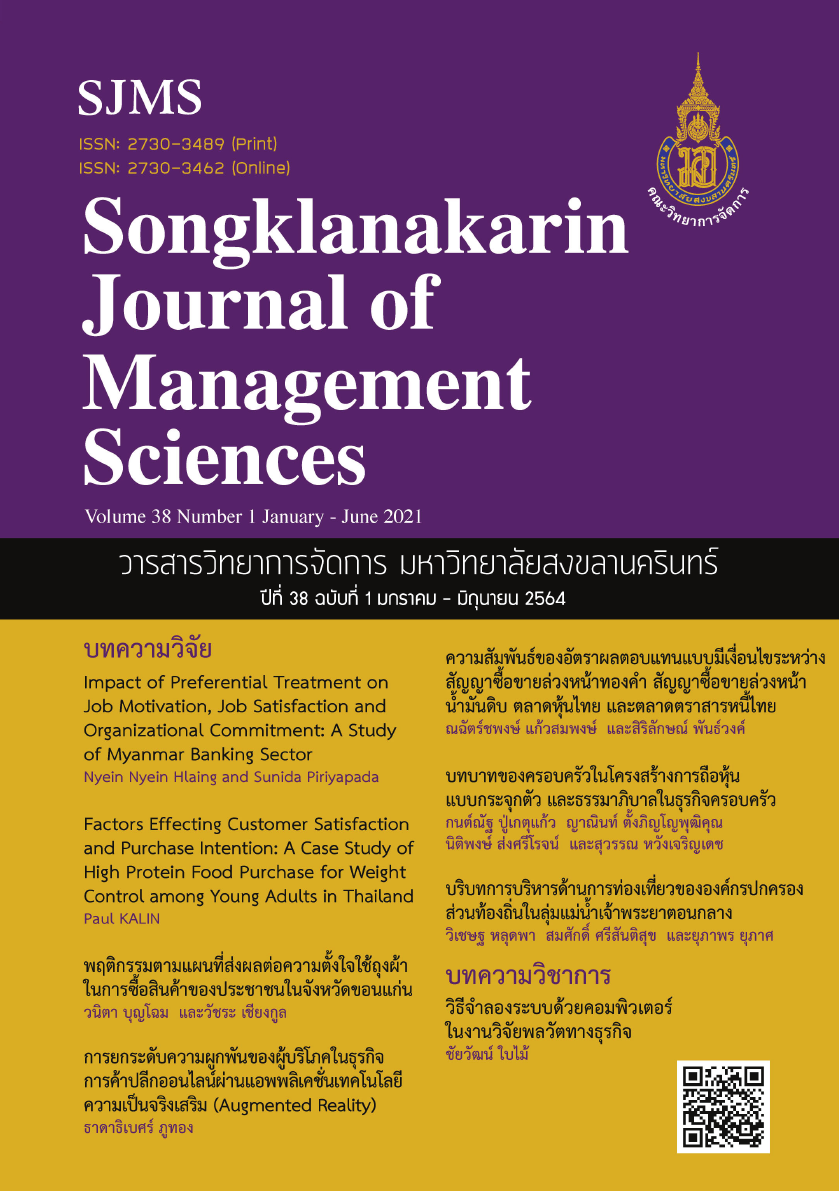The Administrative Context of Local Government Organizations for Tourism in the Central Chao Phraya River Basin
Main Article Content
Abstract
The objective of article is to study the general context and management context of the local government organization for tourism in the central Chao Phraya River Basin in Phra Nakhon Si Ayutthaya Province, Pathum Thani Province, Nonthaburi Province, Ang Thong Province, and Sing Buri Province. This research is a qualitative research by using observation forms, participation and semi-structured interviews. The sample sampling was chosen according to the research objectives. The result of study, the researcher found the general context in tourism promotion of local government organizations is similar trend in the context of the infrastructure of tourist attractions and the context of linking transportation routes in all 5 provinces. The context of tourist sites, Pathum Thani Province has limitations because, it is mainly an industrial area. As the context of media and public relations for tourist attractions there are limitations in the area of Ang Thong Province due to insufficient resources. The last general context, cultural context and beliefs of communities in tourist areas found similar limitations in the area of Nonthaburi Province and Pathum Thani Province because having diverse communities from immigration and migrated to work in that area which is the result of the various beliefs and cultures as well.
In addition, the administrative context of the local administrative organization for tourism, it is found that similar trends in all 5 provinces Therefore, the general context and the administrative context of the local government organization for tourism is important to creation of guidelines for tourism management, an efficiency, effectiveness and consistent manner with the context of Local tourism management in the local government organization.
Article Details

This work is licensed under a Creative Commons Attribution-NonCommercial-NoDerivatives 4.0 International License.
All published articles are SJMS’s copyright. The editorial board allows all published articles to be copied, excerpted, or disseminated with academic citation.
References
Ioannis, R., Petros, K., Konstantinos, B., George, A., & Nikolaos, B. (2017). Modulation of Conditions and Infrastructure for the Integration of Change Management in Tourism Sector. Switzerland: Springer Cham.
Izidora Marković, V. (2017). Sustainability Issues in Management of Tourism in Protected Areas: Case Study of Plitvice Lakes National Park. London: Palgrave Macmillan.
Keeraphan, L., Boonkhum, W., & Sungraksa, N. (2016). The Development of Activity Management Model Cultural Tourism of the Thai Phuan Community to Promote Creative Learning Nakhon Nayok Province. Veridian E-Journal, Silpakorn University (Humanities, Social Sciences and arts), 10(2), 25-33.
Kunpalin, P. (2007). Administration of Tourism Strategy Development of Integrated Bangkok. Doctor of Philosophy Program (Public Theology), Ramkhamhaeng University.
Lankina, T .V., Hudalla, A., & Wollmann, H. (2008). Local Government Performance in Economic Promotion. London: Palgrave Macmillan.
Literary Devices. (2013). Metaphor. Retrieved November 4, 2018, from http://literarydevices.net/metaphor/
Lukas, P. (2019). The Responsibility of the Destination: A Multi-stakeholder Approach for a Sustainable Tourism Development. Switzerland: Springer Cham.
Lukdee, D., & Laaor S. (Personal communication, March 22, 2019)
Mara, M., Valeria, M., & Erica, M. (2014). The Analysis of European Reporting Systems for Responsible Tourism and CSR. Switzerland: Springer Cham.
Paris, T. (2000). Environmental and Cultural Tourism Resources: Problems and Implications for their Management. Environment & Assessment, 6(2000), 203-220.
Peter, F. D., & Joseph, A. M. (2006). The Effective Executive in Action, New York: HarperCollins.
Pons-Morera, C., Canós-Darós, L., & Gil-Pechuan, I. (2017). A Model of Collaborative Innovation between Local Government and Tourism Operators. Service Business, 12(18), 143-168.
Shakeela, A., & Weaver, D. (2018). Participatory Planning and Tourism Development in the Maldives: A Prerequisite of Sustainability?. Managing Asian Destinations, 28(2), 73-85.
Siricharoenvisan, K. (2009) . Appropriate Marketing Model of the Venue for the Domestic MICE industry Thailand. Doctor of Philosophy Program (Tourism Development). Maejo University.
Stone, M. T. (2015). Community Empowerment Through Community-Based Tourism: The Case of Chobe Enclave Conservation Trust in Botswana. Institutional Arrangements for Conservation, Development and Tourism in Eastern and Southern Africa, 1(14), 81-100.
Turanlıgil, F. G. (2016). Public Policy and Sustainable. Alternative Tourism in Turkey, 121(1), 349-362.

